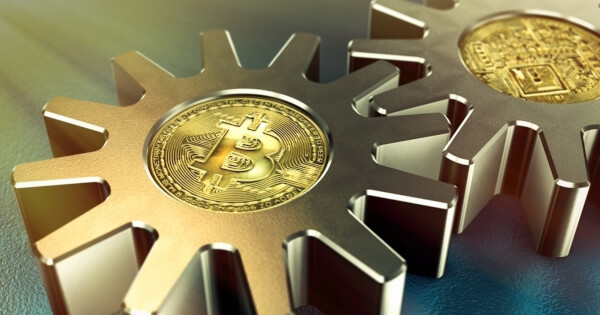PayPal and Blockchain: an uneasy alliance

News publisher
December 21, 2024 at 05:01
Here’s a closer look at the uneasy alliance between the leading digital wallet, PayPal, and the blockchain technology used to facilitate cryptocurrency payments.
image: https://cdn.pixabay.com/photo/2018/04/28/16/11/blockchain-3357567_1280.jpg
Before we discuss the uneasy alliance between the world’s leading digital wallet, PayPal, and blockchain technology, we can start by revealing the key differences between these two fintech solutions.
We can also take a look at whether blockchain Fades or if it will one day replace PayPal as the most popular online payment solution.
What are the main differences between PayPal and blockchain technology?
PayPal and blockchain are two completely different technologies for fintech solutions. However, PayPal has recently started using blockchain technology for many of its services.
PayPal is classified as a digital wallet, but it is also called a web wallet, e-wallet, mobile wallet, or e-wallet. It all means pretty much the same thing. It essentially acts as an intermediary between the user and their bank and/or credit/debit card. However, instead of the bank processing the transaction, PayPal does so.
The leading global online payment method allows users to make online and offline purchases at virtual checkout on millions of websites and point-of-sale devices. You can also send and receive money to other PayPal users (and now non-PayPal users) anywhere in the world.
You can also use PayPal to link, store and manage your bank account and credit/debit card information, set up a PayPal Balance account, or use PayPal Credit, which is very similar to a credit card but without a physical card.
The main benefits of using PayPal at checkout are near-instant transactions to over 110 countries, top-notch cybersecurity, highly encrypted end-to-end communications, and ultimate convenience. It’s also inexpensive compared to many traditional online payment methods and APMs (alternative payment methods), and it’s very easy to use.
Blockchain is a shared database that facilitates online Bitcoin payments. This technology stores transaction data and distributes it across a highly encrypted network of nodes or encrypted data blocks, which are permanently linked to each other.
It is the underlying technology or computer software ecosystem that supports most cryptocurrency transactions.
PayPal is a centralized online payment solution, which means that transactions are tracked by central banks/government agencies, but the nature of decentralized blockchain networks means that transactions cannot be tracked or monitored by these financial institutions/government agencies, protecting the heart of the matter. Online freedom and anonymity.
Is it safer to use PayPal or Cryptocurrency to pay for goods and services online?
Choosing a payment method has become a big factor in how people pay online. Players now use it a lot PayPal in the casino Or play at an online casino via a dedicated app as a way to ensure that transactions are safe and secure. These same players can also use cryptocurrencies in many cases, although as it is a newer payment method, there are still some drawbacks sometimes.
Deposits are usually processed instantly, and average withdrawal times are known to be processed anywhere from five to ten minutes up to two or three hours. However, there are several factors that can determine how long it takes to process PayPal withdrawals, such as the size of the withdrawal, how busy the payment processing department is on the website you are trying to withdraw from, and what time/day of the week you initiated the withdrawal.
Also, if you have not yet completed the KYC (Know Your Customer) ID/age verification process, PayPal withdrawals may take much longer.
Why is there an uneasy alliance between PayPal and blockchain?
To keep up with the latest industry trends and societal ways of investing and spending, PayPal may have to completely change its current business model to keep its platform up to date with how customers and consumers use their money. Blockchain has been steadily growing in popularity for years and is likely to overtake all other forms of finance incredibly soon.
This will certainly make PayPal feel somewhat uncomfortable as it will likely make their entire platform obsolete unless they change their models, business strategies, and marketing techniques to attract modern cryptocurrency users and retain their existing customers who are quickly turning into cryptocurrency enthusiasts.
When using cryptocurrency for online transactions, there is no need for central banks or digital wallets such as PayPalThat’s why PayPal is probably starting to get concerned about this emerging technology that is sweeping the world and becoming more widespread and widely adopted with every passing day.
Final thoughts
It’s hard to say whether blockchain technology will one day fade away completely or become the world’s first method that people will use to pay for things at a virtual checkout. However, at the current rate of expansion, blockchain networks and cryptocurrencies are almost certainly here to stay for the foreseeable future.
This type of fintech solution would give PayPal a run for its money, and while it could one day replace PayPal and other fintech solutions, that’s unlikely to happen anytime soon. The sharp rise in the use of cryptocurrencies globally has heightened speculation that PayPal, Visa, direct/instant bank transfers and other online payment solutions will become obsolete, but exactly when that might happen is anyone’s guess.
To ensure they don’t consign themselves to the history books, PayPal will have to adapt with the times and ride the storm.
Users can already use their personal PayPal account to buy, hold, and sell a growing number of cryptocurrencies, such as Bitcoin (BTC), Bitcoin Cash (BCH), and Litecoin (LTC). Ethereum (ETH)and PayPal’s new stablecoin, PayPal USD (PYUSD), so changes are already starting to happen, and PayPal may be updating its business model. It will be interesting to see what the future holds for the online wallet giant.
Image source: Shutterstock
https://blockchainstock.blob.core.windows.net:443/features/FB704D4CFD551EEBC44A7BE4A76AE07D12B3AA47ACE03A1AC2480FB1FDC5722A.jpg

